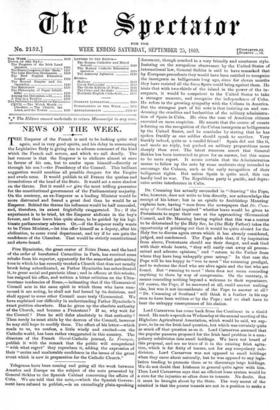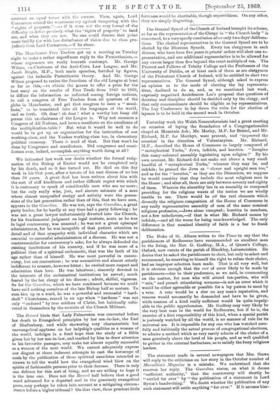Lord Carnarvon has come back from the Continent in a
timid mood. He made a speech on Wednesday at the annual meeting of the Highclere Agricultural Association, which would be said, we sup- pose, to boon the Irish land question, but which was certainly quite as much off that question as on it. Lord Carnarvon assumed that the popular panacea proposed for the Irish land problem is a com- pulsory subdivision into small holdings. We have not heard of this proposal, and see no trace of it in the existing Irish agita- tion, which is for fixity of tenure, not for any compulsory sub- division. Lord Carnarvon was not opposed to small holdings when they came about naturally, but he was opposed to any legis- lation tending to promote them or to discourage large holdings. We do not doubt that Irishmen in general quite agree with him. Then Lord Carnarvon says that an efficient lease system would be a cure for the injustice so often done to tenants. No doubt. But it must be brought about by the State. The very secret of the mischief is that the poorer tenants are not in a position to make a contract on equal terms with the owners. Then, again, Lord Carnarvon echoed the wearisome cry against tampering with the "rights of property,"—as if it were not the very kernel of the difficulty to define precisely what the 'rights of property' in land are, and what they are not. No one could discuss that point more lucidly (or with less disturbance of vision due to class pre- judice) than Lord Carnarvon,—if he chose.































